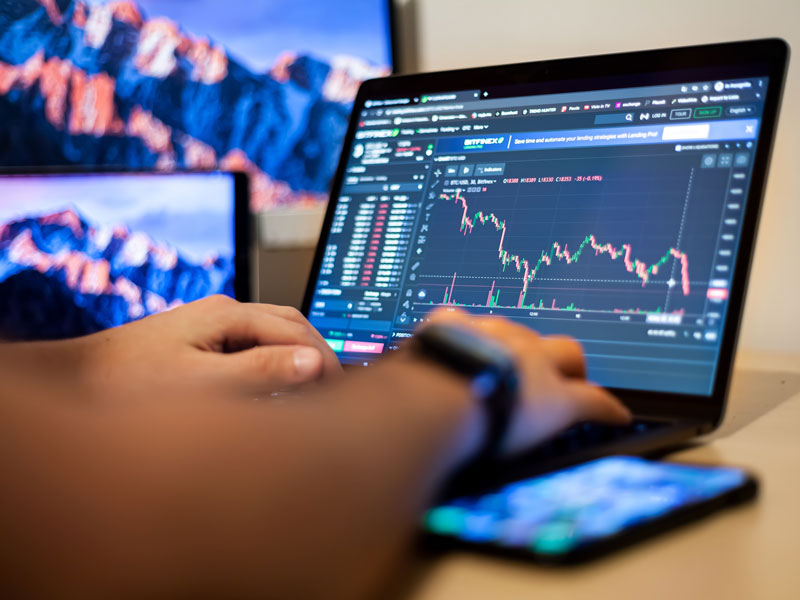
In the world of forex trading, more than just strategy and analysis determine success or failure; trading psychology plays a crucial role. The emotional state of a trader can influence their decisions, leading to both profitable and detrimental results. Understanding this aspect of trading is essential for anyone serious about achieving success in the forex market. As you delve into the nuances of trading psychology, consider trying out the forex trading psychology Top MT4 Trading Apps to help you manage your trades effectively.
The Importance of Trading Psychology
Forex trading is often painted as a purely analytical process, dominated by charts, indicators, and algorithms. However, the truth is that human emotion plays a significant role in shaping trading outcomes. Fear, greed, hope, and regret are psychological factors that can sway a trader’s decision-making process. It’s essential to recognize how these emotions influence our trading behavior and be equipped with strategies to manage them.
Understanding Emotion in Trading
Emotions like fear and greed are the two most prominent psychological factors in forex trading. Fear can prevent traders from making moves, even when analysis suggests that a trade could be profitable. Conversely, greed can push traders into making impulsive and often unwise decisions, driven by the desire to secure profits quickly.
Furthermore, hope can create a dangerous mindset, where traders ignore the facts and hold onto losing positions in the hope that the market will eventually turn in their favor. Regret can also play a role; when traders experience regret over missed opportunities, they may be tempted to chase after trades without adequate analysis.
Developing a Trading Plan

Establishing a solid trading plan can help mitigate the influence of psychological factors on trading. A comprehensive trading plan outlines your goals, risk tolerance, strategies, and criteria for entering and exiting trades. By sticking to a well-thought-out plan, you can reduce the emotional rollercoaster that often comes with trading.
Risk Management
Risk management is another critical aspect of trading psychology. Understanding how much to risk on any given trade is essential for maintaining emotional stability. Traders often fall into the trap of risking more than they can afford to lose, leading to high-stress situations and increased likelihood of making poor decisions. Implementing risk management techniques, such as setting stop-loss orders or limiting the amount of capital allocated to each trade, can alleviate some of the emotional burdens.
Emotional Detachment
One of the most effective strategies for managing trading psychology is to cultivate emotional detachment from the market. This means recognizing your emotions without allowing them to dictate your trading actions. Techniques such as mindfulness meditation can help traders develop this awareness, allowing them to respond to market conditions more rationally rather than reactively.
Maintaining Discipline
Discipline is crucial in forex trading, and it directly relates to trading psychology. Sticking to your trading plan and following your strategies may be challenging, especially when faced with the temptations of the market. Many traders are lured into making impulsive trades due to FOMO (Fear of Missing Out) or emotional impulses, which can lead to significant losses. Practicing discipline involves regularly reviewing your trades, assessing your emotions during trading, and staying committed to your plan.

Building Confidence
Confidence is a double-edged sword in trading. While a level of confidence is necessary for success, overconfidence can lead to reckless trading decisions. New traders often struggle with self-doubt that can hinder their performance, while experienced traders may become complacent and fail to analyze trades effectively. Building confidence involves a combination of education, practice, and consistency in applying your trading strategies. Regularly conducting post-trade analyses can also enhance your skill set, allowing you to build a more accurate perception of your trading abilities.
Continuous Learning
The forex market is constantly evolving, and traders must be willing to adapt. Continuous learning not only sharpens your trading skills but also strengthens your mental resilience. Engaging with educational resources, attending webinars, and participating in trading forums can equip you with valuable insights and strategies that enhance your overall trading performance.
Seeking Support
Sometimes, the psychological burdens of trading can feel overwhelming. Seeking support from fellow traders or joining a trading community can provide much-needed motivation, validation, and perspectives. Sharing experiences and strategies with others can help you gain insights into emotional management while fostering an environment of accountability.
Conclusion
In conclusion, trading psychology is an integral component of successful forex trading. By understanding the emotional challenges that accompany trading and implementing strategies to manage them, traders can vastly improve their chances of success. Whether it’s through developing a robust trading plan, practicing risk management, or engaging in continuous learning, each of these aspects contributes to a more psychologically sound trading approach. As you navigate the complexities of the forex market, remember that your mindset can be just as important as your trading strategy.





